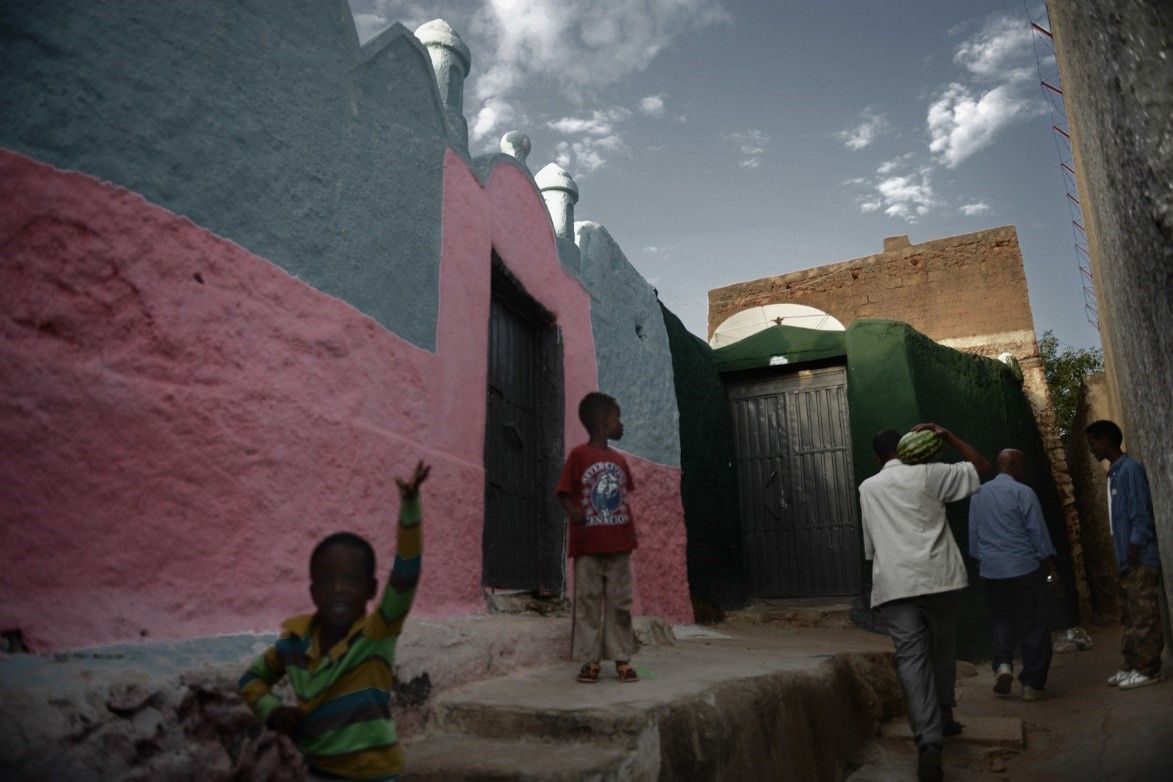Ramadan, the ninth month of the Islamic calendar, is a holy period of fasting, prayer, and spiritual reflection for Muslims around the world. In Ethiopia, where approximately one-third of the population is Muslim, Ramadan is a significant occasion celebrated by many communities.
Throughout the month of Ramadan, Muslims in Ethiopia fast from dawn to dusk, refraining from food, drink, and other physical pleasures. The fast is seen as a means of cleansing the soul, cultivating self-discipline, and drawing closer to Allah/God. Many Ethiopians observe the fast with great devotion, spending their days in prayer, reading the Quran, and performing tremendous acts of charity.
Ramadan is also a time of communal celebration and fellowship, with Muslims gathering to break their fast each evening with an iftar meal. In Ethiopia, these meals often feature traditional dishes such as injera, a sourdough flatbread, and wot, a spicy stew made with meat, vegetables, and spices.
In this article we will explore the unique customs, traditions, and experiences of Ramadan in Ethiopia, highlighting the ways in which the holy month unites communities and fosters a sense of shared purpose and devotion.

Prayers at a Mosque during Ramadan. Source: Jonathan Rashad /Huckmag
Iftar Time
In Ethiopia, iftar time refers to the breaking of the fast during the holy month of Ramadan. Muslims in Ethiopia follow the same pattern of fasting and breaking their fast as other Muslims around the world. However, due to the country's location and time zone, iftar time in Ethiopia can be slightly different from other countries. The exact time of the iftar varies depending on the location within the country, but it usually falls around the time of sunset.
Ethiopian Muslims break their fast with dates, water, and a light meal, often consisting of soup, bread, and various dishes, including meat and vegetables. The iftar meal is usually shared with family and friends, and it is a time of togetherness and gratitude for the blessings of Ramadan.

A family gathered for Iftar in Harar. Source: Jonathan Rashad
During Ramadan, a large-scale street iftar is usually organized with the noble aim of raising funds for charitable causes. The proceeds generated provide assistance to individuals affected by both natural and man-made calamities. This benevolent initiative is a testament to the compassion and generosity of the Muslim community which is committed to making a positive impact on the lives of those in need.
Addressing the congregation, the Deputy Mayor of Addis Ababa, Jantirar Abay congratulated the attendees for making time to attend the Grand Iftar and prayer event held in 2023. He added “Christianity and Islam have peacefully co-existed in Ethiopia for more than a century”, calling for unity and love, before wishing all Muslims a joyful Eid

The faithful praying during the Grand street iftar in Addis Ababa, Ethiopia. Source: Abel Gashaw
Grand iftars are attended by several Muslim leaders, government officials, and guests from other countries. The street from Mexico Square to Bambis, crossing the Meskel Square, becomes packed with fasting families and friends, waiting to break the long fast with an iftar meal shared with the community.

A group of women at the great iftar prayers. Source: Abel Gashaw
Giving Back to the Community
During Ramadan, charity takes a central role, and many Muslims in Ethiopia perform various acts of offerings and goodwill. One of the most common forms of charity during Ramadan is Zakat, which is the giving of a fixed percentage of one's wealth to individuals or communities in need.
This is often done through organized charities or by giving directly to those in need. Another form of charity is Sadaqah, which is the voluntary giving of any amount, often to support community projects or to help those who are struggling financially.

Food distribution during Ramadan. Source: Islamic Relief Ethiopia
In addition to monetary donations, many Ethiopians, including Christians, also participate in volunteer work and donate their time and skills to help others. For example, some Muslims may volunteer at a local mosque or a charity organization to prepare and distribute iftar meals to those in need. Others may organize food drives or participate in community clean-up projects.
Ramadan is also a time for forgiveness and reconciliation, and many Muslims in Ethiopia use this time to mend relationships with family and friends, as well as to forgive past transgressions. This act of forgiveness is considered a form of charity and is an important part of the Ramadan experience.

Prayer time. Source: Abelgashaw_visual/ Instagram
Overall, Ramadan is a time for spiritual reflection and acts of kindness, and Muslims in Ethiopia strive to embody these values by giving back to their communities and helping those in need.
Harar: One of Islam’s Holiest Cities

Colorful walls and narrow alleys of Harar. Source: Jonathan Rashad
Harar is a city in eastern Ethiopia that is known for its rich history and cultural heritage. The city is considered to be one of the holiest Islamic cities in the world, and it is home to more than 100 mosques. Some of the mosques date back to the 10th century. Harar's ancient town, which is a UNESCO World Heritage Site, is famous for its traditional architecture, narrow alleys, and colorful markets.
The city of Harar has a long and fascinating history, and it has been a center of Islamic scholarship and culture for centuries. Many of the city's landmarks are associated with important religious figures, including the 16th-century Muslim scholar Sheikh Abadir and the 19th-century religious leader Emir Nur. Harar remains an important center of Islamic learning and culture, and it attracts visitors from around the world who come to explore its ancient mosques, vibrant markets, and rich cultural heritage.
The city's diverse population includes people from many different ethnic and religious backgrounds, and its vibrant arts and crafts scene is a testament to the creativity and talent of its people. The city is also known for its unique customs and traditions, including the Hyena Man, who feeds hyenas by hand every night as a form of protection against evil spirits. Overall, Harar is a unique and fascinating city that holds an important place in the Islamic world and the hearts of Ethiopians.

The Harari man and his wild-hyena show. Source: SCMP
A Time for Devotion
Ramadan in Ethiopia is a significant month celebrated with great enthusiasm and devotion by Muslims. During this time, Muslims fast from dawn until sunset, engage in acts of charity, and break their fast with traditional dates and water. The month is also a time for reflection, forgiveness, and spiritual renewal. Generally, Ramadan in Ethiopia is a time of community, generosity, and spiritual growth, mirroring the culture of Ramadan in many other parts of the world.
Ramadan Kareem.
